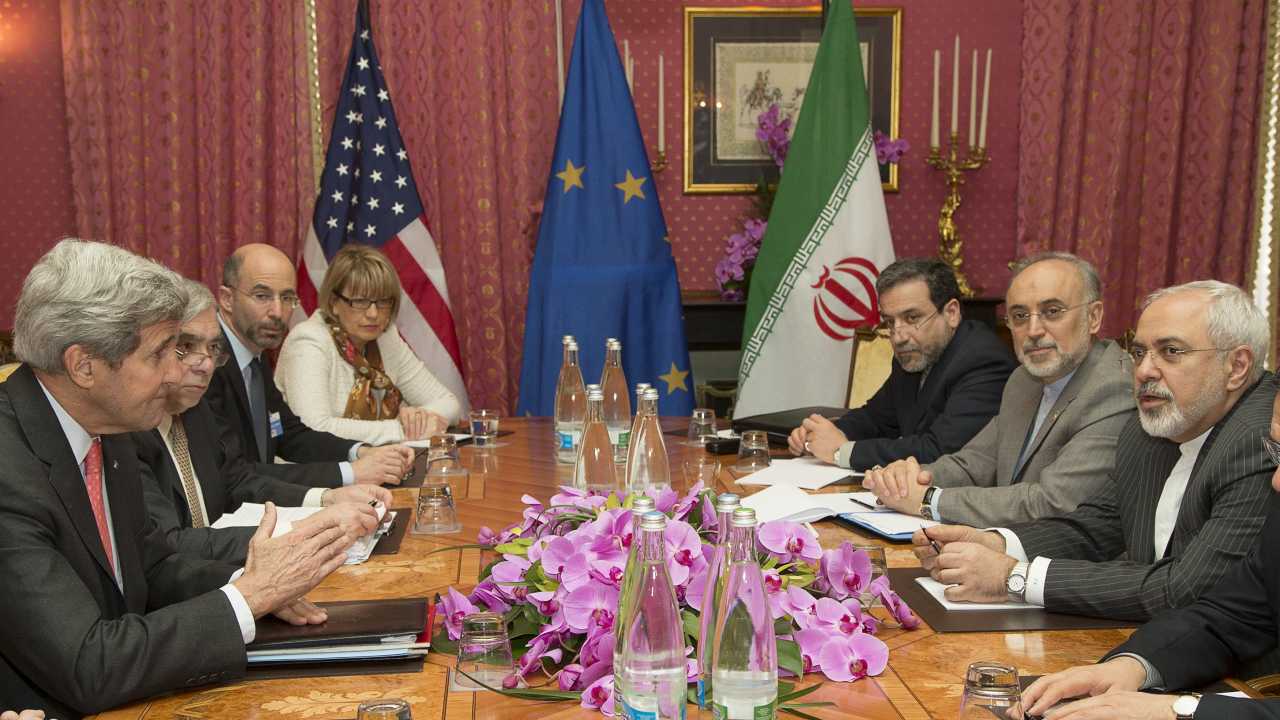
The Middle East and Persian Gulf today has managed to become politically more complex than any other time in the recent past, and this, after the Iraq war, is an achievement in itself.
Iran’s nuclear program is now one of the most debated topics in the region’s geo-political theatre, with Iran holding its ground on its right to peaceful nuclear energy, and the P5+1 countries which include the 5 permanent members of the UN Security Council, and Germany, committed to stalling the Iranian program on the back of its potential capabilities to build nuclear weapons.
As India works aggressively towards a stronger Indian Ocean and maritime strategy, Iran could, and should, play an important role for Indian foreign policy and security aims in the region, specifically as a counter to China’s base in the Pakistani coastal port town of Gwadar, and also to what India wants to achieve in Afghanistan.
Iran and India share historic ties even though much of the relations in the modern times have been based on mutual needs, that of Delhi’s thirst for oil, and Tehran’s need for the cash it makes from selling the oil. This has been the dynamic that has been effected the most between the two countries, and while India has managed fine as a buyer to find alternative sellers, Iran has struggled as a seller to find buyers. This, is why today the Iran and P5+1 talks are on a tenterhook, and removal of sanctions by the West is being used as the sour spot by the Iranian regime, and for good reasons. Since the sanctions were placed, Iranian economy has suffered tremendously as purchasing of oil from the country in the international markets had become next to impossible.
However, all these discrepancies aside, the fact also remains that on its very best days, Iran is still a very difficult customer, partner and at the risk of sounding presumptuous, ally, to deal with. “They are very, very difficult to deal with. I sometimes used to mentally prepare for a week just to get ready for all the absurdness that comes with dealing with Iranian bureaucracy,” a European diplomat tasked with Iran once told me, visibly looking tired just at the mention of the country’s name.
But for India, Iran is an opportunity. Rich in oil and gas, and only separated from India by a small pond named the Arabian Sea, Tehran offers India direct, cheap access to energy, a commodity India needs in abundance. During the peak of sanctions, Iran started to show some of its colours, as it found itself completely cornered, with even India decreasing oil imports dramatically due to American pressure and general difficulties in financial transfers. In fact, for all the purchases India managed thanks to certain sanction waivers offered by the US, all of Iran’s earnings were deposited in a bank account in Kolkata, which Tehran was allowed to access only last year, after a three year gap. During this period Iranian desperation was visible, as it threatened to sell undeveloped oil fields given to Indian companies to China, and tried to convince Delhi to use ‘unconventional’ money transfer routes to make payments, which would have India, signatory of multiple international financial treaties, breaking international law.
On the issue of Iran’s nuclear program, New Delhi has had to manage a tightrope walk. In 2009, India voted with the US against Iran’s nuclear program on the basis of it not being transparent with the International Atomic Energy Agency (IAEA), a decision that did not go down well in Tehran. India’s fears over Iran’s program are bound to two theories that stand besides the usual diplomatic caveats. The first being that new entrants, specifically in the Middle East, into the nuclear arms club are automatically seen as a threat to both global security stability and the military edge that nuclear powers with swelled chests stand by with.
Secondly, a nuclear Iran would possibly also mean Israel finally, and publicly, recognising that it posses nuclear weapons, putting an end to the world’s worst secret. An Iranian bomb could mean states such as Saudi Arabia acquiring nuclear weapons as well, if they don’t try to dismantle the Iranian program by force first. For Riyadh, access to nuclear capabilities may not be hard, and it could gain deterrence of similar capacity in a fairly short period of time from its de-facto nuclear military complex in Pakistan. General opinions aired by various experts and diplomats suggest that Saudi Arabia sees Pakistan as its very own nuclear program, if the need arises.
Iran’s Foreign Minister, Mohammad Javad Zarif, is possibly the most competent man to have represented the Iranian regime leading these negotiations. This is the absolute ideal time to strike a deal, as the P5+1 group may not be lucky enough to get a levelheaded negotiator against them in the future. Considering the amount of backlash that Zarif has to manage within Iran, with his own government more than often working against a deal, a pragmatic understanding may be lost for considerable time if not done now.
A nuclear arms race in the Middle East, where the nuances of political upheaval, distrust and long-standing sectarian conflicts, not just within communities but also within community pockets inside governments, makes for a highly volatile landscape. This, makes it difficult in any way to ensure safety of nuclear weapons and programs until safeguards are signed off by respective countries. These measures are set in stone, away from governmental overreach allowing rarest-of-the-rare international community operations under the United Nations mandate to secure facilities in an event of compromise by non-state and other such actors.